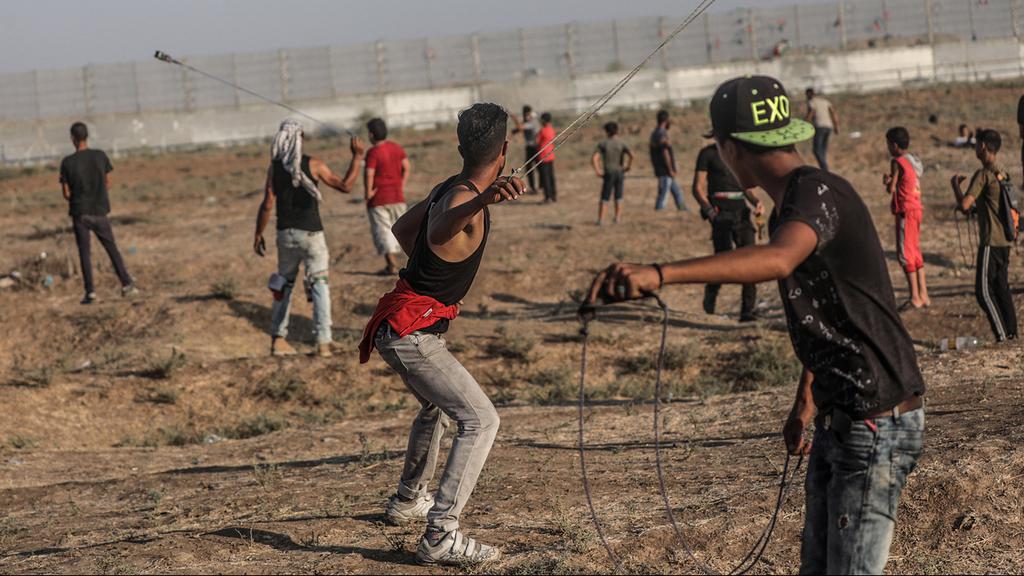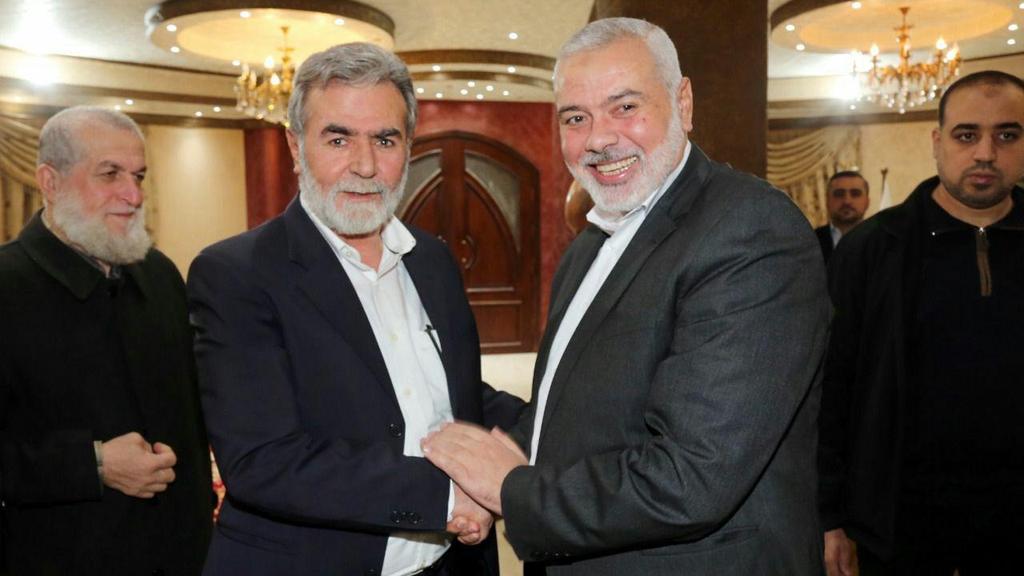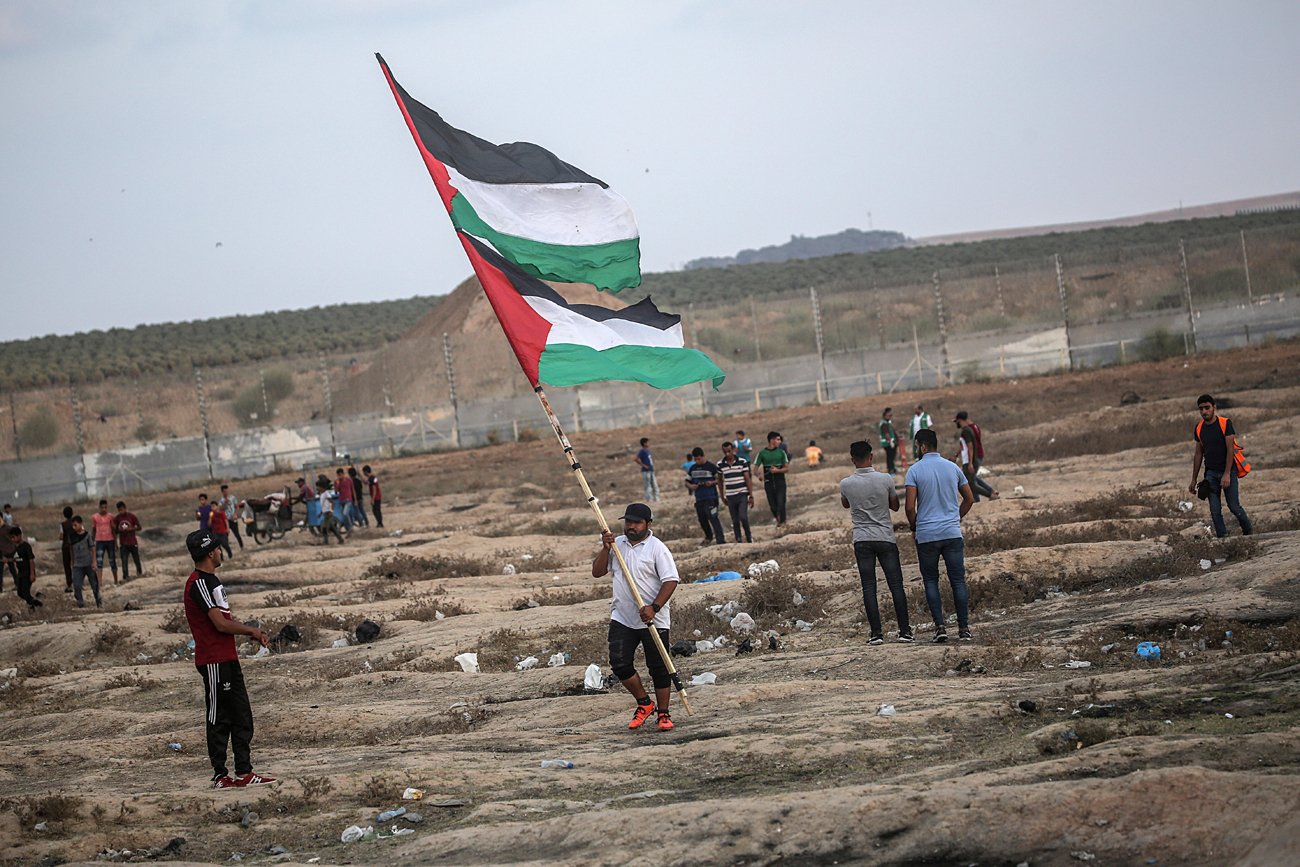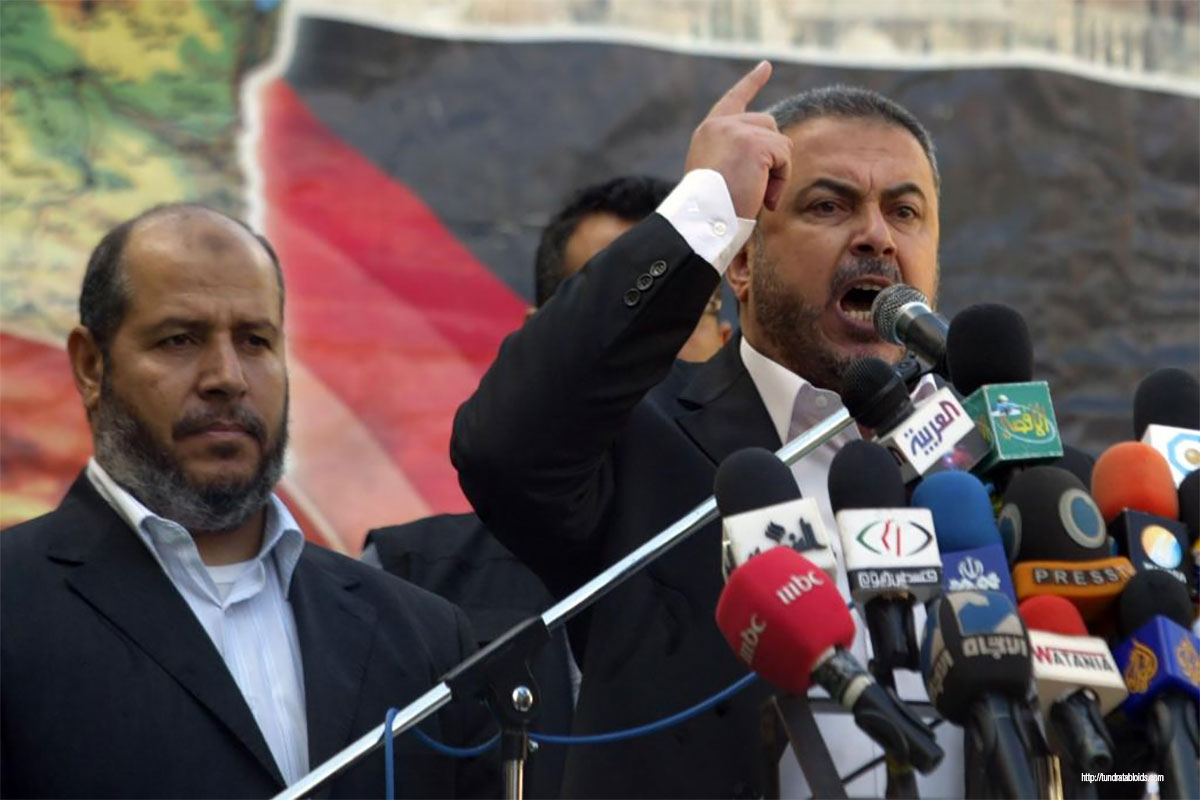A change in strategy surrounding weekly protests along the border between the Gaza Strip and Israel has revealed deep divides among Palestinians in the coastal enclave.
The Higher National Commission, an umbrella organization that has been overseeing what for the past 20 months has often been referred to as the "Great March of Return," announced in a recent statement that the protests will be resumed on a monthly basis, with additional rallies on national holidays.
“The commission … decided to adopt the 'Great March of Return' program for 2020 of holding protests on a monthly basis and whenever a public presence is needed. … It will be launched on March 30, 2020, in conjunction with Land Day,” the statement said, referring to an annual day of protests commemorating deadly demonstrations against Israeli land expropriations in the 1970s, which the initial GMR commemorated in March 2018.
“The period before that date,” the statement continued, “will be invested in forming a high state of readiness to highlight the [protest’s] second anniversary, and in mobilizing and fully preparing for a new historic day in our people’s days of struggle.”
Organizers of the weekly demonstration along the enclave’s frontiers with Israel, which support the Palestinian right of return and protest the siege on Gaza, believe it has accomplished much at the political and practical levels.
Ismael Redwan, a Gaza-based leading Hamas member and a member of the Higher National Commission of the "Great March of Return", says that “the protest has gained attention for the Palestinian cause, achieved unity in the field, and affirmed the Palestinian right of resistance against Israeli occupation.”
However, some believe the protest’s results have been incommensurate with the amount of time invested in it.
Walid Alawad, member of the political bureau of the Palestinian People’s Party, says that “the biggest achievement of the GMR protest, which is shedding light on the refugee issue and the right of return, could have been accomplished by the very first week or the first month of the protest.”
Alawad believes that the current shift in the protest’s path was not a result of political maturity but of “the actual application of the understandings [Hamas-Israeli contacts and communications] that took place last year.”
He added: “We believe that adopting a path of humanitarian, economic improvement at the expense of the political track is totally wrong.”
4 View gallery


Palestinian protesters hurling rocks during protests along the Gaza border fence
(Photo: EPA)
Despite the higher commission’s claim of suspending the protest to get some rest before starting another wave of demonstrations and to properly prepare its activities, much doubt that this is the full truth.
Political analyst Ra’ed Nijm says that “Hamas is trying to maintain its ‘achievements’ and reinforce its rule of the coastal enclave. Continuation of the protest would impede that.”
According to Nijm, Hamas does not want any rival political or military force to control the situation in the Strip.
“[Continuing the protest] would bring back Islamic Jihad as keeper of the key to peace and war with Israel, which Hamas rejects,” he says.
“From Hamas’ point of view, 'Great March of Return' protests had accomplished their goal - which was reinforcing Hamas rule by reaching understandings and thus obtaining some accommodations for the Strip," he says.
"Reopening border crossings for trade; expanding the fishing zone; publicly bringing in funds on a monthly basis with Israel’s approval; establishing the American hospital in northern Gaza; and now issuing permits for trade and workers – for Hamas, all of these are achievements that must be maintained.”
4 View gallery


Ziyad Nakhalah, leader of the Palestine Islamic Jihad and Ismail Haniyeh, Chairman of the Hamas Political Bureau
Nijm fears an Israeli-American plan to isolate the Strip from the broader Palestinian issue.
“We are facing a gradual project to separate the Gaza Strip from the Palestinian cause by establishing a ‘mini-state’ of Gaza," he says.
"This is demonstrated by American-Israeli support for the ‘deal of the century’ and exacerbated by the plight of the Arab region in general and by the profound internal Palestinian division, which has damaged the Palestinian cause already.”
He expects further understandings that “could develop into a prisoner-swap deal.”
Abu Husam, a Gaza citizen who regularly attends the demonstrations, says that “the new shift in the 'Great March of Return' program is nothing but a conspiracy to eliminate the Palestinian cause.”
“We don’t want [Qatar’s Gaza Reconstruction Committee Chairman Mohammed] al-Emadi’s money. We want our land, that’s all.”
Another protest attendee who spoke on condition of anonymity said: "Even if we rested a bit, the 'Great March of Return' protests are a legitimate right guaranteed by international humanitarian law and will continue until we get our land back.”
Article written by Sanna Alswerky. Reprinted with permission from The Media Line



